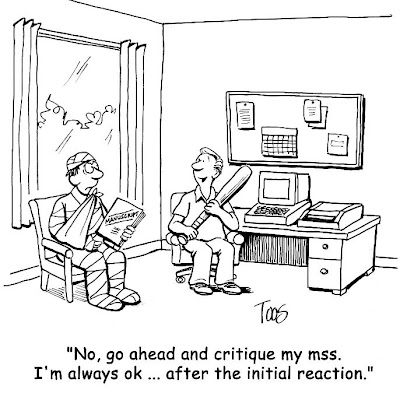
by Julia Buckley
My family loves movies, so my husband made up this game. Everyone throws a few papers into a hat, on which are written the names of living actors or actresses, the possible title for a future movie, or a word that a must appear in a title.
Then someone picks a couple things out of the hat and has to think up a movie premise based on what is written on their two pieces of paper.
My son Ian picked these two: Hal Linden and Robert De Niro.
His movie idea was this. Hal Linden and Robert De Niro play older secret agents who must prove that they still have what it takes to bring down the bad guys and can keep the nation safe. Title: SOCIAL SECURITY. :) (My younger son said that they both have to wear turtlenecks and hats. Not sure why).
Graham picked "House of the--" and "Jack Black." He decided that he would create an action comedy called HOUSE OF THE DEMON SPAWN, and Jack Black is a neighborhood man who is initially frightened of the haunted house, but hears a heavy metal song that inspires him to arm himself with axes that will allow him to take down the demons (my children are violent).
My husband picked Willy Nelson and Burt Reynolds. His premise: Willy Nelson is an old-time country music star who has retired. Burt Reynolds is his biggest fan from years back; he goes on a quest to find him and determines that Willy's character has hit rock bottom, so he makes it his goal to rejuvenate Willy's career. His title: NEW TRICKS (as in, you can't teach an old dog . . .). This one sounds like a movie cliche, but that's part of the goal of this game.
Ian picked "Tobey McGuire" and "Snow Serpents." His premise: Tobey McGuire is a scientist who has heard about seismic events in The Alps. Sure enough, giant serpents are wreaking havoc on the Alps skiing communities. Tobey has no way to fight them; he attacks one with a pen he has in his pocket, and the serpent bites off his hand. His hand is eventually replaced with a flame-thrower, which he uses to battle the serpents in their icy realm. Mila Kunis plays his snow-suited love interest. The title, of course, is SNOW SERPENTS.
It's a fun creative exercise, and of course it could apply to all of our favorite mystery staples. Here are some starters:
Philip Marlowe
Peter Wimsey
A clue
The necklace
Miss Marple
The road to
The girl in the
Redemption
Tom Selleck
Kathleen Turner
Michelle Williams
yellow dress
dirt-covered locket
Daniel Craig
Penelope Cruz
Add some of your own and brainstorm your way to the next big mystery!!
What do you think?


















